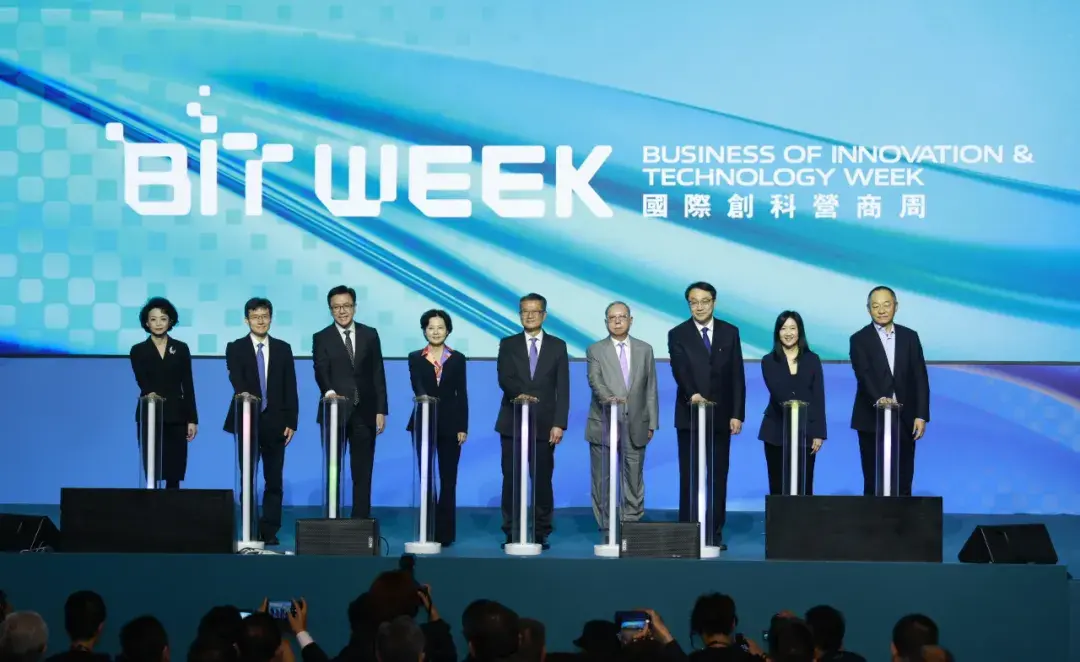Yu Jianing: The New Cryptocurrency Policy in Hong Kong and the Bull-Bear Cycle in My Eyes
Written by: Yu Jianing, former president of Huobi University, founder of Uweb (University of Web3)
Since Q1 2023, the market has experienced a brief recovery, ushering in a small bull market, but the market sentiment is not optimistic or positive.
Therefore, Yuanjie Finance conducted a personal interview with me regarding current hot events, and I would like to share some personal views on the SEC, the timing of the next bull market, the new policies in Hong Kong, and the future of Web3, hoping to be of help to everyone.
1. Regarding the SEC's lawsuits against Coinbase and Binance, is this the final negative news?
These two lawsuits do not constitute a fundamental negative for the industry. Restrictive policies only have a temporary impact on market sentiment; chaos will stimulate regulation, and there will never be a final instance. The market is solidifying its foundation and moving forward after a correction.
In terms of digital asset regulation, the U.S. has always been a global benchmark. After Hong Kong embraced Web3 policies, it seems to have influenced the regulatory pace within the U.S. With the U.S. elections approaching, it is difficult to see a short-term reconciliation of differences among regulatory bodies.
Regarding the SEC's enforcement actions, I am personally more concerned about the contest between Coinbase and the SEC's "Law is Law." A long-term developing market is not afraid of regulation but fears regulatory inaction.
In the context of a not-so-optimistic global macroeconomic environment, the U.S., as the largest source of funds, being cut off or partially cut off will lead to questions about the future entry of new funds and methods into the industry. Recently, Binance's exit from the Netherlands is also a point worth noting, as it may become a template for enforcement in other countries, making buying cryptocurrencies problematic in the future.
The SEC and Binance have reached a consensus on some matters. The starting point of U.S. regulation is to constrain and limit potential risks based on a century-old regulatory framework of traditional finance, similar to Hong Kong, which also starts from the perspective of protecting investors.
2. When will the next bull market be triggered?
I do not believe a bull market will arrive immediately, but we are in the later stage of a bear market. There are significant opportunities in the industry; without reshuffling, adjustments, or declines, where will the opportunities come from?
I personally have insights on the "digital asset clock," breaking down the cycle into four stages: market warming (recovery period), capital inflow (overheating period), market collapse (stagnation period), and waves of innovation (recession period). The current stage is quite clear.
To protect your chips, as long as you survive, profound adjustments are beneficial. Industry giants are concentrated; how can ordinary people participate? Whether it’s elephants fighting or industry adjustments, we are that small grass, needing to avoid being crushed or killed.
A short bull and a long bear characterize the current stage of the crypto market, but with each bull market, our judgment will surpass the previous peak.
The BTC halving narratives of 2024 and 2025 will, barring any surprises, continue to serve as the engine for the bull market.
3. Hong Kong's pilot program and the "West Decline, East Rise" theory
The SEC's lawsuits against Coinbase and Binance represent a climax in this phase of "West Decline, East Rise." The game among regional regulatory bodies has a seesaw effect, but in the context of globalization and digitization, the competitive and complementary forces among different regions are driving changes in the market and policies, further highlighting the strategic significance of Hong Kong's pilot program.
Following the fall of FTX, Hong Kong issued favorable policies embracing Web3.0 in November last year, marking the entry of the cryptocurrency market into the "West Decline, East Rise" phase. Companies engaged in institutional digital asset business in the U.S. are indeed considering or beginning to withdraw from the U.S. due to increased regulatory costs. Recently, a member of the Hong Kong legislature even extended an olive branch to the CEO of Coinbase.
In the process of "West Decline, East Rise," there are distinctions between Singapore and Hong Kong. Singapore is more open, having absorbed a large amount of early traffic and Chinese-speaking teams. PSA and DPT are already relatively mature, and external factors, such as the Occupy Central incident, have also benefited Singapore's economic resources.
Hong Kong, backed by the mainland, connects to the Chinese market. Although the mainland continues to provide support, it still faces challenges such as regulatory uncertainty and alignment with international standards.
4. Hong Kong's greatest advantage—creating an incubation soil for billion-level applications
Hong Kong's ecosystem is built around regulatory transparency, efficient capital, and professional talent.
Hong Kong's exploration may mark the beginning of a new chapter in legal and regulatory environments.
As important regions for technology and innovation, both Hong Kong and the mainland have the soil to develop Web3 and metaverse technologies. In terms of policy support, technological talent, and market demand, both Hong Kong and the mainland have the potential to become ideal incubators and promoters for companies. At the same time, strengthening cross-border cooperation and building an open ecosystem will provide more opportunities and support for the development of Web3 companies.
Hong Kong's opportunity lies in the aggregation of resources, which can enhance the commercial conversion efficiency of resources within the bounds of regulatory permission. This is Hong Kong's greatest advantage and may also be its best opportunity.
The trading scenarios promoted by the Hong Kong government are large application scenarios; trading and circulation are the fundamentals of digital assets, and the value of liquid assets supports the market. The number of users and trading volume are dimensions for evaluating application success. After successfully validating assets, more asset types will be expanded, adding value to the former.
Hong Kong is already prepared for the construction of this ecosystem in terms of infrastructure, including the most important legal framework, market access, and market qualification recognition, as well as the principle of "equal risk, equal regulation." Currently, there are ongoing communications with traditional financial infrastructures, such as traditional banks. The maturity of the secondary market will also foster an increase in the specialization of talent.
Our new company has also chosen to register in Hong Kong's Cyberport. Undoubtedly, we are attracted by the numerous favorable policies for Web3 in Hong Kong. The formation of these policies is due to several reasons: the role of finance is no longer simple, with more geopolitical factors mixed in, and conflicts among major powers have made the previously trusted international financial system increasingly unreliable.
The so-called construction of an international financial center in Hong Kong is not a logic of cost reduction and efficiency enhancement. The new international financial center emphasizes stability, durability, and security. Recent significant events, such as the Hong Kong Stock Exchange launching dual-counter trading of RMB and HKD, indicate that the financial attributes of the RMB are continuously strengthening. Offshore RMB, in addition to trade/payment, will also enhance its investment attributes.
The development of virtual assets and WEB3 in Hong Kong is a proactive response to future uncertainties. In the complex and changing international situation, what does Hong Kong need to rely on to ensure its status in a new financial system? It cannot solely depend on the U.S. dollar and offshore RMB; in the rapid iteration of financial systems, there also needs to be a Plan B and Plan C. I believe Hong Kong's Plan C is virtual assets.
Although virtual assets may not yet be fully integrated into the mainstream, they do have a foundation of global consensus and broad acceptance among countries. Developing virtual assets through continuous regulation and compliance can integrate them into the mainstream, allowing them to combine with the traditional businesses of these financial institutions, enabling Hong Kong to play a more important role in the new global financial system.
Hong Kong's virtual asset-related businesses are not just being pursued by some startups; there are also well-established entities involved, such as the recent digital HKD, and companies like Bank of China, ICBC, and China Construction Bank in Hong Kong are participating. China Mobile Hong Kong, China Mobile International, and the Hong Kong University of Science and Technology are also involved in the establishment of the WEB3 Association.
In summary, this wave in Hong Kong is not only beneficial to Hong Kong but also advantageous to the country, allowing us to maintain a good external circulation system in the future amidst complex and changing circumstances, and to find our foothold in the global financial system.












